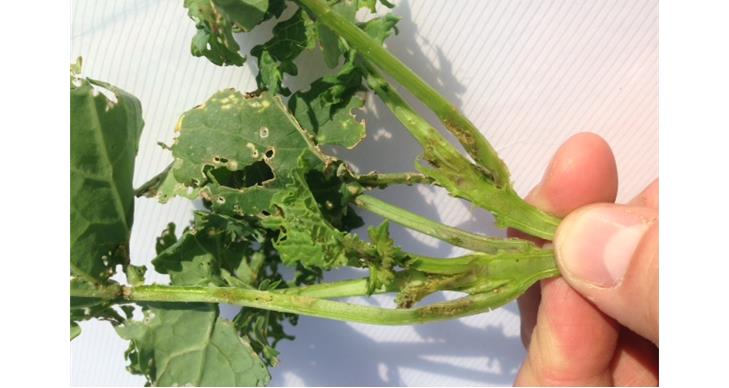Archives – May, 2016
From: AlterNet
Honey bees are still dying at troubling rates; a bee expert explains why.
By Elina El Niño / The Conversation
***
As an extension apiculturist for the University of California Cooperative Extension, I talk to many people, from beekeepers and growers to members of the general public, about honey bees. Most of my audiences are concerned about how honey bee losses could affect the security of our food supply. While the massive and sudden colony collapses that occurred a decade ago have abated, honey bees are still dying at troubling rates. Laboratories like mine are working to understand the many factors stressing bees and develop strategies for protecting them.
May 31, 2016
From: The Daily Progress | Charlottesville, Virgina
BY TONIA MOXLEY
***
Fell and Troy Anderson, a pesticide and insect researcher also working on the Virginia study, said Lu fed high doses of neonicotinoids over long periods of time — a situation not found in normal colonies. Specifically, the levels of pesticides exceeded what is found in the nectar and pollen of treated plants. That is a problem with many lab studies, too, Fell said.
Recent studies have shown that bees are good at detoxifying themselves after exposure to neonicotinoids, Anderson said. Besides, neonics are not widely used in Southwest Virginia, yet annual losses hover around 30 percent, he said.
May 27, 2016
From: EurActiv
Belgium and France are EU’s bee mortality hotspots
By Romain Loury | JDLE | Translated By Samuel White
The European Food Safety Authority (EFSA) has published figures on the loss of bees in the EU. Belgium tops the list for winter mortality, and France for the beekeeping season. EurActiv’s partner Journal de l’Environnement reports.
Funded by the European Commission and carried out by the EU Reference Laboratory for bee health in France, the EPILOBEE study examined the mortality rates in 5,798 honey bee colonies across 17 EU countries between autumn 2012 and summer 2014.
May 26, 2016
From: FG Insight
One of the biggest attractions of Brexit for many is the potential for the UK to develop a more science-led approach to pesticides and plant technology. But has that argument been damaged by the events of the past week?
BY Alistair Driver
George Eustice’s decision to reject the NFU’s application for a derogation from the EU neonicotinoid ban has added further fuel to the Brexit debate.
***
Neonicotinoid application
This position came in for further scrutiny in the wake of the decision by Mr Eustice to reject the latest NFU/AHDB application for a derogation from the current EU neonicotinoid ban.
May 25, 2016
Editor’s Note: Cross-posted from OIRA Watch.
Via: KTIC Radio
BY DTN/Progressive Farmer
New regulations that would require pesticide makers to begin submitting more data to the Environmental Protection Agency (EPA) on how their products affect pollinators are set to be proposed before President Barack Obama leaves office.
***
EPA plans to formally propose the rule in January, according to the Office of Information and Regulatory Affairs (OIRA) May 18 regulatory agenda update.
Read Complete Article
May 24, 2016
From: TheRecord.com
***
A bit more research would have shown her the following facts. The number of honey bee colonies is not plunging according to Statistics Canada but rather up 40 per cent in Ontario since neonic seed treatment started in 2004.
***
Health Canada concluded in January 2016 that there was “no potential risk to bees” from use of a major Canadian neonic seed treatment and that neonic seed treatments reduced crop losses in Ontario by more than $100 million annually. Finally, a recent multi-year National Honey Bee Disease Survey found that varroa mites and other pests and diseases are the dominant cause of bee deaths in the United States.
May 23, 2016
From: The Progressive Farmer | Production Blog
By Pam Smith, Crops Technology Editor
***
That fact was also confirmed by several pollinator studies that landed in my email last week. I’m a hobby bee wrangler by definition of these studies and since they’ve come out there have been multiple articles written about how to analyze the numbers and how the results are not comparable because the data is gathered differently. I get nervous when it takes more pages to describe how to interpret the results than the studies themselves.
May 20, 2016
From: SciDev.net
Speed read
- Varroa mites are becoming resistant to pesticides used in richer nations
- Unlike Western beekeepers, African ones allow bees to abandon hives
- Most mites are left behind when this happens
Traditional African beekeeping methods offer better protection against hive-destroying varroa mites than pesticides which, according to a study, are losing their potency.
The mites, which attach to bees and suck their body fluids, are increasingly resistant to pyrethroids, according to a study, published yesterday in PLOS One.
Read Complete Article
May 19, 2016
From: CBC News
Grain Farmers of Ontario start online campaign to ‘help everyone see impact of new neonic regulations’

Grain farmers in Ontario have taken to Twitter to blast their province for regulations that demand farmers plant only half their acreage with neonicitinoid-treated seeds this year.
***
Grain Farmers of Ontario on Thursday then started encouraging farmers to tweet pictures of bugs and pests, accompanied with the hashtag #grainbugs, to “help everyone see impact of new neonic regulations.”
Read Complete Article
May 18, 2016
From: NFU | The Voice of British Farming

The NFU has said it will persist in applying for the emergency use of neonicotinoid seed treatments on behalf of farmers facing pressure from cabbage stem flea beetle.
This follows Defra’s announcement yesterday afternoon that Farming Minister George Eustice has decided not to accept the NFU’s most recent applications.
Read Complete Article
May 17, 2016
Previous page

